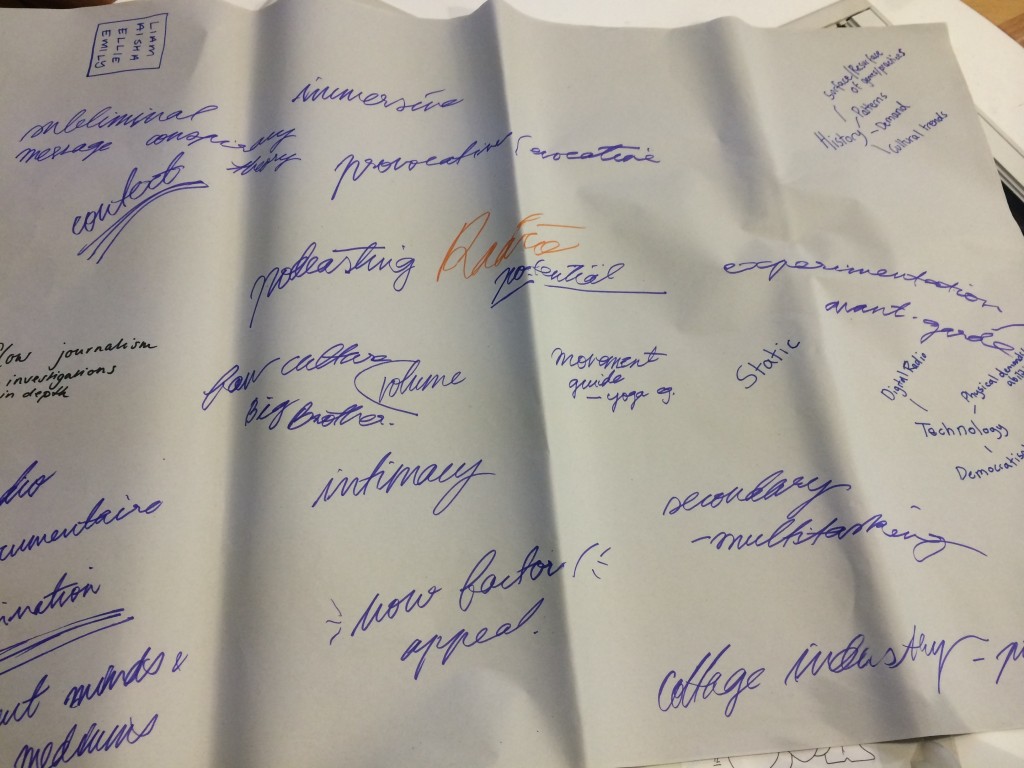Technology has always had a hand in designing the human experience. Fire kept us warm when before we’d been cold; iPhones kept us entertained when before we’d been bored. Technology – along with fashion, which is intertwined – defines our conception of an era. The Victorians had their steam trains and uncomfortable corsets; Medieval Europe had churches that took 200 years to build and men in tights.
Cathedral building in the Middle Ages
The developments in radio’s mid-century New Wave interest me in the way the reflect other media of the time. The parallels between cinema vérité (which I have a personal vendetta against but have to acknowledge as an important part of cinema history) and the New Wave of radio are fascinating to me. The portability of technology revolutionised both these forms of media but still seem so bulky and inconvenient to modern ideas. Logically, I can look at the technology of the day and say, “Yes, I get it, I can see, I understand this 100%”, but trying to conceptualise the limitations and sheer physical presence (acres of tape!) makes it seem like an overwhelming enterprise.
David Attenborough sound recording in Indonesia in the 1950s
I suppose I’m spoilt by the availability of technology today. From where I’m sitting in the lounge room, I can count at least three (the TV might record sound too, I think) means of getting my voice ‘on tape’. Still, even though the possibilities feel limitless – I could, at this second, record and upload a podcast or create any variety of media – I realise that in spite of the innovations of the day, humanity will always face the same problem: laziness.


